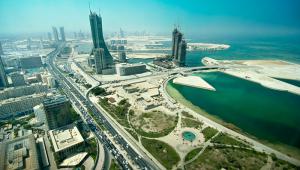Evidence that the disease had reached a key border town in the Democratic Republic of the Congo prompted the declaration by the World Health Organisation.
The status now given to EVD recognises that it constitutes a public health risk to other countries and therefore potentially requires a coordinated international response.
“It is time for the world to take notice and redouble our efforts,” said Dr Tedros Adhanom Ghebreyesus, WHO director-general.
“We need to work together in solidarity with the DRC to end this outbreak and build a better health system.
“Extraordinary work has been done for almost a year under the most difficult circumstances. We all owe it to these responders – coming from not just WHO but also government, partners and communities – to shoulder more of the burden.”
Dr Tedros declared the Ebola outbreak a “Public Health Emergency of International Concern” following a meeting of the International Health Regulations Emergency Committee in the DRC.
It was the fourth meeting of the emergency committee since the latest Ebola outbreak was declared on 1 August last year.
The committee cited recent developments in the outbreak – including the first confirmed case in Goma, a city of 2 million people on the border with Rwanda.
There have been 2,512 confirmed or probable cases of Ebola in DRC, including 136 health workers affected.
The epicentre of the crisis in DRC is Beni, with 46% of the cases over the last 3 weeks, but the case in Goma caused alarm because 15,000 people cross the border from the city into Rwanda every day.
Members of the emergency committee expressed disappointment about delays in funding which have constrained the response to EVD, and made specific recommendations related to this outbreak.
“This is about mothers, fathers and children – too often entire families are stricken. At the heart of this are communities and individual tragedies,” said Dr Tedros.
The committee reinforced the need to protect livelihoods of the people most affected by the outbreak by keeping transport routes and borders open, arguing that it is essential to ensure the response to the disease does not penalise affected communities economically.














